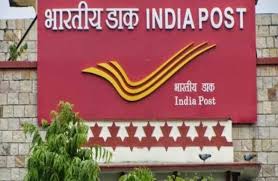 The entire direct benefit transfer (DBT) scheme for distribution of government subsidy is likely to be handled by the Post Bank — the new payments bank which will be under the Department of Posts.
The entire direct benefit transfer (DBT) scheme for distribution of government subsidy is likely to be handled by the Post Bank — the new payments bank which will be under the Department of Posts.
The entire direct benefit transfer (DBT) scheme for distribution of government subsidy is likely to be handled by the Post Bank — the new payments bank which will be under the Department of Posts.
“Earlier initial capital approval sought for setting up Post Bank was about Rs 300 crore which has been increased to Rs 800 crore as there is proposal now that entire DBT scheme should be handled by it as well as saving accounts currently handled by DoP should also be moved under it,” an official source told PTI.
Public Investment Board (PIB) will consider this proposal in its meeting on January 15 and then send its recommendation to Cabinet Committee on Economic Affairs for final approval, the official said.
The Reserve Bank of India has granted Payments Bank permit to the postal department, which has 1.55 lakh branches across country and already provides financial services.
Pilot for the Payments Bank is set to start from January 2017 while full-fledged operations are to start from March 7, 2017.
Under DBT scheme government directly transfer subsidies in to bank account of people eligible for it. Subsidies of around 35-40 government schemes are covered under it including that provided on domestic LPG connections.
As per official data, till December 27 around Rs 40,000 crore was directly reaching the beneficiaries through various schemes.
As many as 40 international financial conglomerates, including World Bank and Barclays, have shown interest to partner with Postal Department for the payments bank.
The DoP has shortlisted six consultants including McKinsey, KPMG, Ernst and Young and PricewaterhouseCoopers. The postal department expects to finalise consultant for setting up of payment banks by end of this month.
At the end March 2015, the DoP housed around 20 lakh saving accounts which held total deposit of about Rs 47,800 crore. The payment bank wing of DoP is also proposed to manage these accounts.
As per RBI guidelines, payments banks would offer a limited range of products such as demand deposits and remittances.
They will, however, not be allowed to undertake lending activities and will initially be restricted to holding a maximum balance of Rs 1 lakh per individual customer.
They will be allowed to issue ATM or debit cards as also other prepaid payment instruments, but not credit cards.






